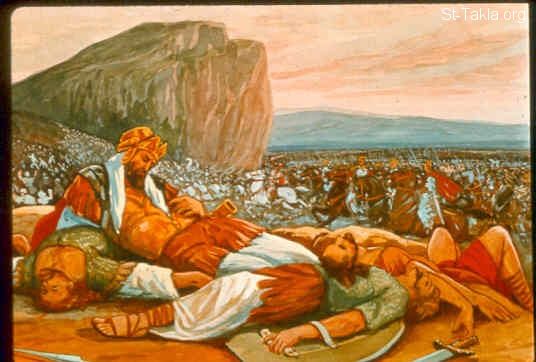Introduction
The story of King David’s son dying is a tragic and poignant event in the Bible. It illustrates the serious consequences of sin and the complex nature of divine justice and mercy. This blog will explore why David’s son died, the context of this event, and the profound lessons it offers.
The Context: David’s Sin with Bathsheba
- David’s Adultery: The story begins with King David’s sin of adultery with Bathsheba, the wife of Uriah the Hittite. David saw Bathsheba bathing, was overcome with desire, and summoned her to his palace, leading to an affair.
- Murder of Uriah: When Bathsheba became pregnant, David tried to cover up the affair by recalling Uriah from the battlefield, hoping he would sleep with his wife and believe the child was his. When this plan failed, David orchestrated Uriah’s death by placing him in the front lines of battle.
Nathan’s Confrontation and Prophecy

- The Parable of the Rich Man and the Poor Man: Prophet Nathan confronted David with a parable about a rich man who took a poor man’s only lamb. David, angered by the rich man’s actions, declared that he deserved to die.
- Revealing David’s Sin: Nathan revealed that the parable was about David, condemning him for his sins of adultery and murder. Nathan pronounced God’s judgment: “The sword shall never depart from your house” (2 Samuel 12:10).
- The Specific Judgment: Nathan also prophesied that the child born to David and Bathsheba would die as a direct consequence of David’s sin: “Because by this deed you have utterly scorned the Lord, the child who is born to you shall die” (2 Samuel 12:14).
The Death of David’s Son

- The Child’s Illness: Soon after birth, the child became gravely ill. David fasted, prayed, and lay on the ground all night, pleading with God for the child’s life.
- David’s Grief: Despite David’s repentance and earnest prayers, the child died on the seventh day. David’s servants were afraid to tell him, but when he learned of the child’s death, David got up, washed, worshiped God, and resumed his duties.
- David’s Acceptance: David’s reaction surprised his servants. He explained, “While the child was still alive, I fasted and wept, for I said, ‘Who knows whether the Lord will be gracious to me, that the child may live?’ But now he is dead. Why should I fast? Can I bring him back again? I shall go to him, but he will not return to me” (2 Samuel 12:22-23).
Lessons from the Story
- Consequences of Sin: The death of David’s son underscores the gravity of sin and its far-reaching consequences. David’s actions had repercussions not only for himself but also for his innocent child.
- Divine Justice and Mercy: This story highlights the balance between God’s justice and mercy. While David was forgiven, the consequences of his actions still unfolded, showing that forgiveness does not always negate the earthly repercussions of sin.
- Repentance and Redemption: David’s genuine repentance is evident in his actions and Psalms, particularly Psalm 51, where he seeks God’s mercy and cleansing. Despite his sin, David remained a man after God’s own heart, illustrating that redemption is possible for even the gravest of sins.
- Human Responsibility: The story teaches about the weight of responsibility that leaders and individuals bear for their actions. David’s abuse of power and subsequent repentance serve as a reminder of the need for integrity and accountability.
Conclusion
The death of David’s son is a sobering reminder of the serious consequences of sin. It also reflects the complex interplay of divine justice, mercy, repentance, and redemption. Through this story, we learn that while God is just and sin has consequences, He is also merciful and offers a path to forgiveness and restoration.
Views: 1325








